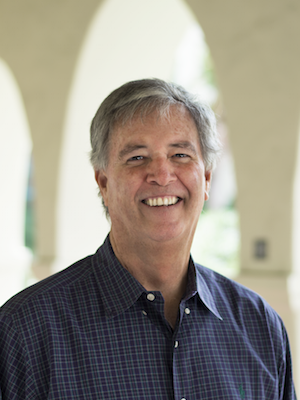Dr. George Dionisopoulos

Professor Emeritus
dionisop@sdsu.edu
George Dionisopoulos is Professor of Communication at SDSU. He earned his B.A. and M.A. degrees in Speech Communication from San Diego State University. In 1984 he was awarded his Ph. D. in Communication from Purdue University. After a year at Rutgers University, he joined the faculty in the School of Communication at San Diego State. His areas of research and teaching include argument theory, public argument, media criticism, persuasion, and political communication. He lives in San Diego with his wife and three children and in his spare time he bicycles and scuba dives.
Courses:
- Argumentation Theory COMM 470
- Seminar in Rhetorical Criticism COMM 640
- Foundations of Critical Cultural Methods COMM 441
- Media Literacy COMM 580
- Persuasion Theory COMM 492
Key Publications:
- Goehring, C. & Dionisopoulos, G. N. (2013). Identification by antithesis: The Turner Diaries as constitutive rhetoric. Southern Communication Journal. 78, 369-386.
- Hansen, W. D & Dionisopoulos, G. N. (2012). Eulogy rhetoric as a political coping mechanism: The aftermath of Proposition 8. Western Journal of Communication, 76, 24-43.
- Renegar, V. R. & Dionisopoulos, G. N. (2011). The Dream of a cyberpunk future? Entelechy, dialectical tension, and the comic corrective in William Gibson’s Neuromancer.” Southern Communication Journal. 76: 323-341.
- Malkowski, J. A., Renegar, V. R. & Dionisopoulos, G. N. (2011). The HPV mandatory vaccination controversy: Creating a frame of perspective for public health initiatives. In Brann, M. (Ed.). Contemporary Issues in Health Communication: Theoretical and Practical Case Studies. Dubuque, IA: Kendall-Hunt: 271-284.
- Dionisopoulos, G. N. (2010). “To open a door and look inside”: Dead Man Walking as a prima facie case. Western Journal of Communication, 74, 292-308.
Awards:
- Western Journal of Communication‘s B. Aubrey Fisher Award for Outstanding Article of the Year, 2008.
- Marie Hochmuth Nichols Award for Outstanding Scholarship in Public Address. Presented by the Speech Communication Association, 1995.
- PRIDE Award, for outstanding innovative, developmental, and educational achievement in public relations research, 1990; 1992
- Alumni Association Award for Outstanding Faculty Contributions 2014
Faculty Main Page
